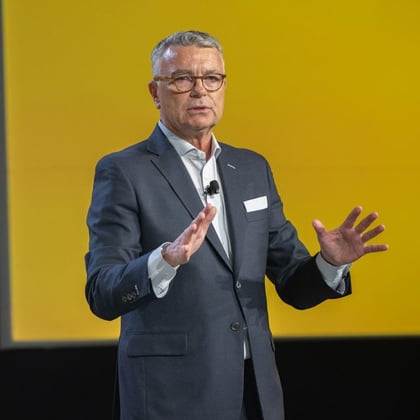What You Need to Know
- The world of wealth management is undergoing a period of rapid and profound change, according to Jim Crowley, CEO of BNY Mellon Pershing.
- To succeed, tomorrow’s wealth managers must elevate their technology footing to support efficient and holistic planning capabilities and personalization at scale.
- From generative AI to machine learning, advisors have a lot to consider, but they can look to service provider partners for help.
The world of wealth management is undergoing a period of rapid and profound change, according to Jim Crowley, CEO of BNY Mellon Pershing, and as a result, both advisor firms and service providers like Pershing are having to adapt — and fast.
This means carefully but confidently embracing emerging technologies, such as generative artificial intelligence and machine learning, and not being afraid to question longstanding ways of doing business simply because change feels discomforting and difficult.
It also means uncompromisingly conserving those elements of the job that cannot and should not change, Crowley says, particularly the need to establish deep personal connections with clients and to ensure a spirit of trust and collaboration — both between advisors and their clients and between advisors and their indispensable service provider partners.
“The demands on the wealth manager coming from clients and from the marketplace have never been bigger,” Crowley suggests. “We know that is the case because the same is true for us at Pershing. We are being pushed to innovate like never before, and we are rising to the challenge.”
A Time of Change
Crowley emphasized these twin-linked challenges and opportunities during a keynote address given Tuesday afternoon before some 2,000 wealth management professionals gathered for the Pershing Insite conference in Orlando, during which he was joined on stage by Emily Schlosser, chief operating officer, and Ainslie Simmonds, Pershing X president.
In addition to highlighting the firm’s launch of a major new wealth management platform called Wove, the executives also outlined their broader vision for their firm and the financial services industry at large.
Simply put, 2023 represents a time of change for the wealth management industry, they said, and this should be seen as a good thing.
As the leaders of other major firms have emphasized in presentations and interviews with ThinkAdvisor, tremendous growth is possible for wealth managers who are willing to ask hard questions about their process. On the other hand, firms that fail to innovate are destined to struggle in the years ahead.
Crowley on AI
While he did not speak at length about the emergence of artificial intelligence in the advisory industry, Crowley did open his address with the topic, arguing that generative AI programs such as ChatGPT have “enormous potential in wealth management.”








 June 06, 2023 at 04:23 PM
June 06, 2023 at 04:23 PM












 Copyright © 2024 ALM Global, LLC. All Rights Reserved.
Copyright © 2024 ALM Global, LLC. All Rights Reserved.